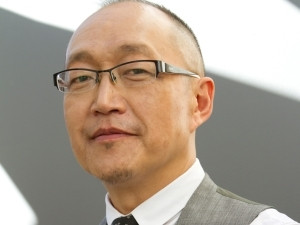
Dion Chang, founder of Flux Trends, is one of South Africa's most respected trend analysts and takes the unique view of "trends as business strategy". While his feet remain firmly planted on African soil, he uses a global perspective to gauge the zeitgeist, and track ahead-of-the-curve trends to identify shifting business templates.
His presentation at ITWeb's forthcoming Inaugural Industry Tech Update 2017 in October is themed: State we are in: dazed and disorientated, the impact of being 'woke'. This will track the disruptive forces that have been changing and moulding the business world in the past two years and the sense of unease it brings.
ITWeb Events: What do you feel the top three challenges will be for Africa in terms of moving from a sales-based mentality to a value-based mentality?
Dion Chang: The number of diverse needs and requirements in Africa versus the first world countries presents its own unique set of challenges - we don't have homogeneity of brands. Secondly, the vastness of the African continent and lastly the demographics in Africa.
ITWeb Events: In your opinion, what will the future look like if machines are able to do so many of the jobs people currently carry out?
Dion Chang: Many people ask me this very same question, the so-called Fourth Industrial Revolution is already transpiring and we are starting to experience a parallel conversation about the great displacement, meaning the adoption of robotics and machines. Examples of this happening are all around us - you just have to travel through the airports.
I have lectured at the University of Cape Town, we have had some people from Zambian mines and the feedback they have provided is that a lot of mining functions have already been automated.
This is not the future it is now and the jobs you mentioned are being absorbed by robots and machines already.
During my presentation l demonstrate some of the co-bots and implementations already in use.
The good news, and why it is called the 'great displacement' is because those people who are being replaced by algorithms, machines or robots are now being displaced into a different service or maintenance industry that is linked to the original one. The problem being however, technical skills need to advance and we need to keep upskilling ourselves to stay ahead. Companies need to start looking inward, upskilling and training their staff. The dynamic is changing and those companies that do invest, they then have new hybrid skills to offer the organisation they are working for.
ITWeb Events: What "futuristic tends" within can we look forward to seeing in the near future in the government, finance and retail sectors?
Dion Chang: The first wave of disruption is what people are dealing with now, digitisation, social media and various new forms of communication, which have really changed the way we communicate and a lot of companies are still struggling with this.
We are however already tracking the impact of the next wave which is the futuristic block which is happening right now. We can categories these into: robotics or automation; big data linked to this are algorithms especially in banking, travel and more recently in retail; chatbots and metaverse a mix of virtual reality and augmented reality.
ITWeb Events: What are the three lessons learnt that you would like the attendees of ITU2017 to take away with them from your presentation?
Dion Chang: Firstly it's that the stuff that I show in my presentation will not be something from the distant future. It's already starting to happen so the future is closer that you think and it's happening faster and faster and you need to take action to survive.
The second one is that across all industries there is a huge impact of disruption and new technology. Organisations need to pivot their business. I think a lot of people still don't do that but we are starting to see really big corporations around the world pivot what they do.
Thirdly is that organisations need to keep questioning the purpose of what their company or brand does. Companies are struggling with the concept of ambidextrous leadership. It is a huge challenge trying to maintain some institutional memory of what they do. Juggling two paradoxical strategies at the same time is difficult and a lot of people ask why they should when what they have now works? My response - the future is closer than you think.